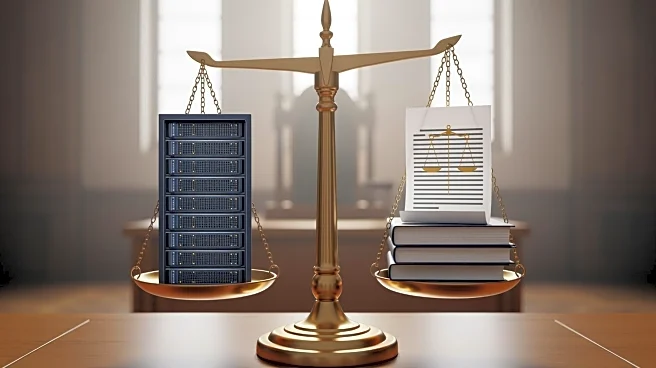What's Happening?
The Wisconsin Institute for Law and Liberty (WILL), a right-wing law firm, has raised concerns about the management of voter registration data by the Wisconsin Elections Commission (WEC). In a letter to
the U.S. Department of Justice, WILL claims that the WEC is allowing erroneous data entries to persist in the state's voter registration database. The firm argues that discrepancies between voter registration information and Department of Transportation records are not being adequately addressed, potentially violating the Help America Vote Act (HAVA). The WEC, however, disputes these claims, stating that the discrepancies are often due to minor errors such as typos or mismatches in names and that these do not necessarily indicate ineligible voters. The WEC maintains that it follows federal law and that the presence of non-matches does not warrant removal from the voter rolls.
Why It's Important?
This issue is significant as it touches on the integrity of the electoral process in Wisconsin, a state with a history of contentious elections. The allegations by WILL could fuel further skepticism and conspiracy theories about election integrity, particularly among supporters of President Trump, who have previously questioned the legitimacy of election outcomes. The dispute also highlights ongoing tensions between conservative groups and election officials over voter roll management and the potential for disenfranchisement. If the DOJ were to intervene, it could set a precedent for federal involvement in state election administration, impacting how voter data discrepancies are handled nationwide.
What's Next?
The U.S. Department of Justice may investigate the claims made by WILL, which could lead to further scrutiny of Wisconsin's election processes. This could result in changes to how voter registration data is managed or prompt legislative action to address the concerns raised. Additionally, the ongoing debate may influence public perception and trust in the electoral system, particularly as the 2026 midterm elections approach. Stakeholders, including political parties and civil rights organizations, are likely to monitor developments closely, potentially leading to legal challenges or advocacy for policy changes.









